The hotter months can make your summer drive downright uncomfortable. If you leave your car parked in the sun on an 85°F day, you might return to find that the interior cabin air temperature has climbed to 130°F after only an hour. Not only can it be dangerous for you to be in your car when the cabin is that hot, but it can damage electronic devices left in your car and cause your engine to overheat. Here’s how you can beat the heat when parked or driving in the hotter months.
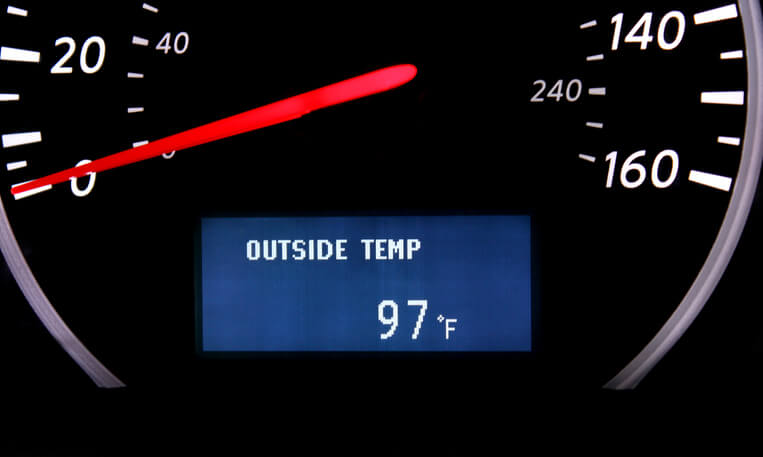
1. Park in the Shade
Parking in the shade of a tree or a building can help keep your vehicle cooler, so take advantage of those shaded areas. If no shade is available, park your car so that the front end is facing away from the sun. This will let in less sunlight, as your back window is smaller than your front window, keeping the cabin temperature down and the front seats from becoming too hot.
2. Crack Your Windows
Leaving your windows cracked is easy enough to do and goes a long way to help keep your cabin cool for your summer drive. In fact, leaving the front windows open two inches can lower cabin air temperature by almost 10°F on a hot day. Note that even with the windows all the way open, you should never leave a person or an animal in the car.
3. Cover the Seats
Hot seats can be extremely uncomfortable and take a long time to cool down, even with the AC running. Keep a few towels in your car and lay them over the seats and the steering wheel before you leave your car in the sun all day.
4. Spin the Wheel
You can keep your steering wheel from becoming too hot without a cover or a towel. Once you’re parked, turn your steering wheel 180° so that the section you keep your hands on isn’t baking in the sun all day.
5. Use a Car Shade
Car shades can help keep your dashboard and seats from becoming incredibly hot. One report found that car shades were able to reduce dashboard surface temperatures by more 43°F.
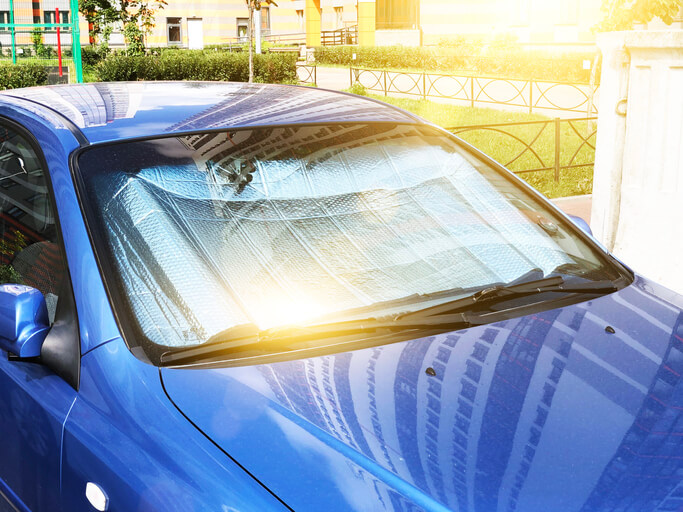
6. Keep Valuables Out of the Sun
Temperatures of 95°F or more can damage your laptop or smartphone. Leaving your device in the sun can cause the battery to wear out much faster. It can even cause the hard drive to physically expand. If you must keep your device in your car, be sure to place it in the shade—for example, in the trunk or on the floor of the back passenger seat. Keeping your valuables out of sight can also help prevent them from being stolen.
7. Slam the Doors
It may sound juvenile, but slamming your car doors can help force out hot air. While your vehicle is still parked:
- Turn on the air conditioning.
- Open the lower vent and close the upper vent.
- Roll the windows up and open all four doors (or two, if you drive a coupe).
- Go to the passenger side and slam the front and rear door shut.
Doing this can help force the hot air out of the cabin. Note that this procedure won’t work for minivans.
8. Use the Lower AC Vent
You can push hot air out of your car more easily by:
- Opening your windows
- Turning on your AC
- Opening the vent closest to your feet
- Closing the vent closest to your face.
As the lower AC vent blows cold air, it forces the hot air to rise and flow out the open windows. This is even more effective when you open your sunroof (if you have one, that is).
Check your cabin filter and your engine intake air filter on a regular basis. Replace filters if needed.
9. Use the Recirculate Setting
Once you push the hot air out of the cabin of the car, roll your windows up and keep the AC running. Continue to bring in fresh air until the cabin reaches a comfortable temperature. Once it has, switch from the fresh air setting to the recirculate setting to recirculate the cool air inside the cabin. This is an especially important step if you find yourself stuck in traffic, as using the fresh air setting can increase your exposure to carbon monoxide emissions.
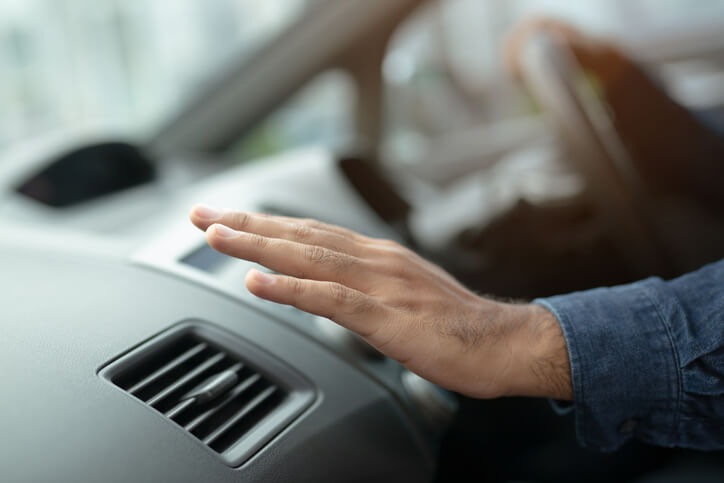
10. Prevent/Handle an Overheated Engine
Prevent: Check, or have a mechanic check, that your vehicle has the proper amount of antifreeze and coolant. Both of these fluids will help maintain engine temperature, whether it is summer or winter.
Handle: If the temperature gauge on your dashboard shows that your engine is becoming too hot, pull to the side of the road. Roll your windows down and turn on the heat and the fan. Doing this will pull the heat from the engine into the cabin. With the windows down, that hot air should flow from the cabin quickly. Do this for about 20 minutes, keeping an eye on your temperature gauge. Once the temperature returns to normal, you can start driving again. If, after 20 minutes, the engine’s temperature has not gone down, call for roadside help.
11. Check the Tire Pressure
Underinflated tires will flatten against the ground more than properly inflated tires. This can increase the amount of friction and heat that the tires are exposed to. Coupled with scorching hot roads, your tires are far more likely to blow out. Make sure that your tires are inflated to the appropriate PSI. You can find the recommended PSI for your vehicle’s tires in the owner’s manual. It’s also listed on the tire PSI sticker located on the driver’s side door jamb.
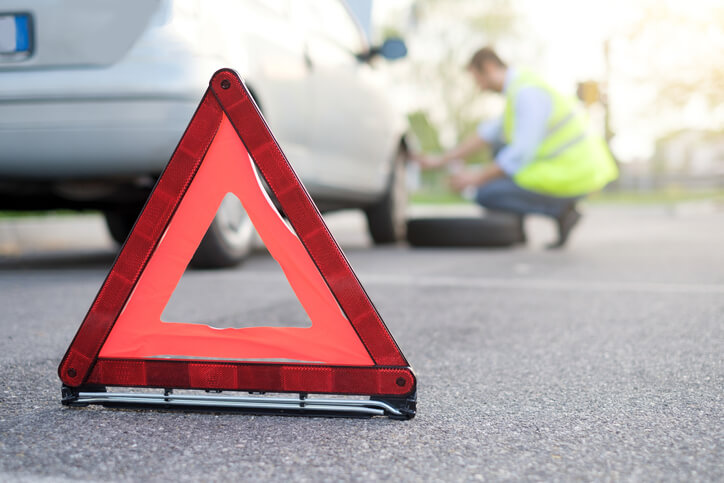
Honorable Mentions
In addition to the above, be sure to:
- Bring water with you on the road. An insulated bottle is best to keep it nice and refreshing!
- If traveling with electronics, place them on the floor so they are kept in the shade. Preferably in front of the right passenger seat, so it’s easy to grab and go.
- Always carry an umbrella in the car for sudden summer showers or in case you have to walk in the sun due to breakdown.
Stay Cool!
The summer months can make for some unpleasant driving due to the high heat. But, by following these precautions, you can make your summer drive comfortable and safe–and keep your vehicle running.




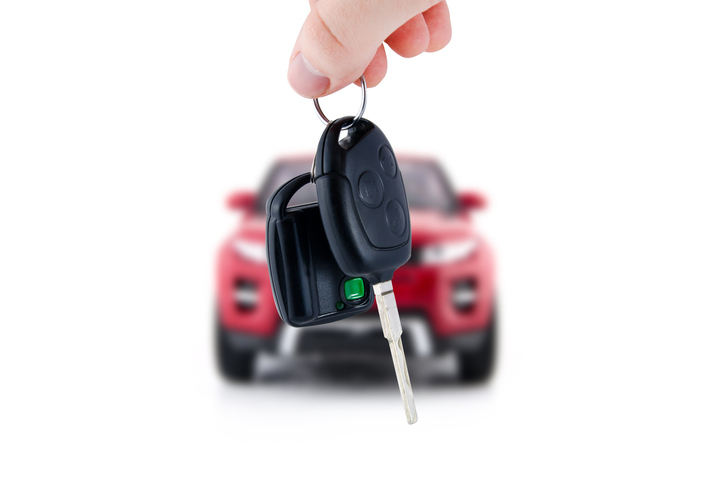
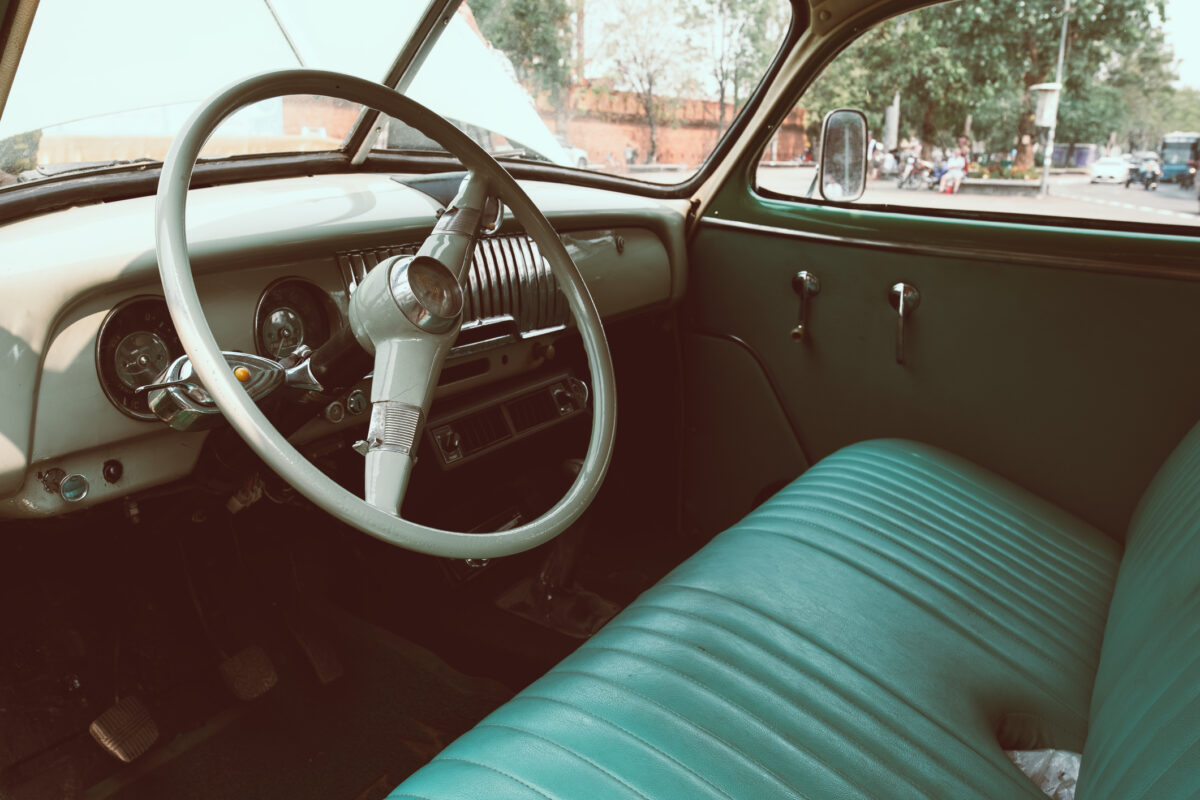

I already do some of those tips; the shade, open the windows, put the AC on to let the hot air out, park in the shade, if possible, and cover the seats if no shade; but thanks for the rest of the information, especially about keeping the wheel cool. Many a time I had to wait a bit the wheel to cool down.
Great info. Now to be able to remember all the info
Yes, helpful
LEARNED A LOT OF USEFUL INFO.
GREAY INFO
Very helpful!!
Great article Very informative
Very helpful
#7 and #8 were very helpful
As we get older we need to reread what we thought we knew.
Awesome suggestions
Excellent advice. Thank you
Thank you for the tips very useful information
Living right in between Rt 85 and I 95 this article was very helpful as we are constantly stuck in traffic especially on Fridays and Sundays and we also cannot get out of our driveways sometimes for 7 to 10 minutes. Any help is welcome.
A good number of the hints were new to me and I plan to use them as I have no air conditioning. Thank you.
The article made me think of that I wouldn’t normally think about
Very helpful and thanks for the refresher!!
Thank You for this important information
I was very impressed with the information. It helped me a lot
This was a lot of helpful information! Thank you!😊
Good, useful information.
Good reminder especialy went the car overheat
Very good information, love this
Hello:
Clear plastic water bottles can concentrate sunlight like a magnifying glass. If a bottle is left in the sun near tissues or dry paper, the intensified light could ignite a fire.
Very informative. Thank You
Very good and interesting information!
Great for most of them and already am aware. i am not a everyday driver so keep my
car cool in a garage as well but thanks for info. Have some great summer days and
you stay cool as well.
e.
I do many of these tips but found out about turning on the lower vents to force out the hot air helpful
I already do all of the things except slamming the doors but will add that. Thanks
Yes
I knew most of it but not all. Thank you so much !
When going on a road trip I always freeze two bottles prior to leaving. This doesn’t take up any extra room in the cooler it also provides extra cooling capacity and onewhen the bottles thaw you have a nice cold water.
I have been using some of these Tecnetics for some time
This was very helpful. #’s 7 & 8 was insightful as well. I had no ideal. I heard about #9 but did forget about it. Reading it brought it all back. Thank you for the info.
Regarding defensive driving, I was taught comprehensively by the U.S. Army and was licensed to drive every vehicle in their inventory. Additionally, I was also even more so by AT&T where you had to go through an extensive course and be certified before you could drive any company vehicle.
Very helpful tips. Thank you!
It’s good to know about all this information.Thanks for sharing!
#9 had new information for me I would never had done.